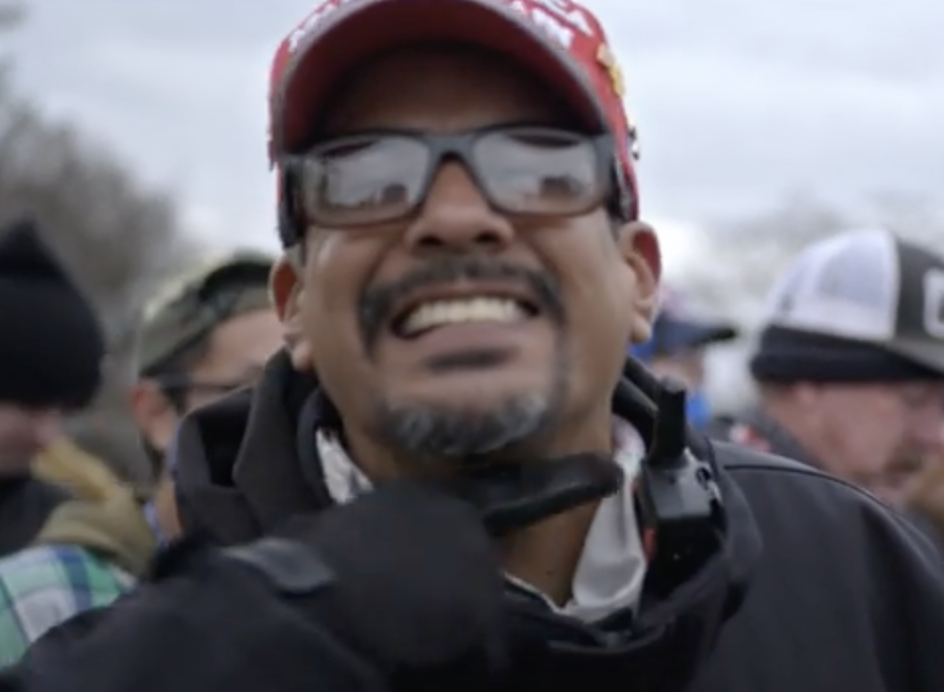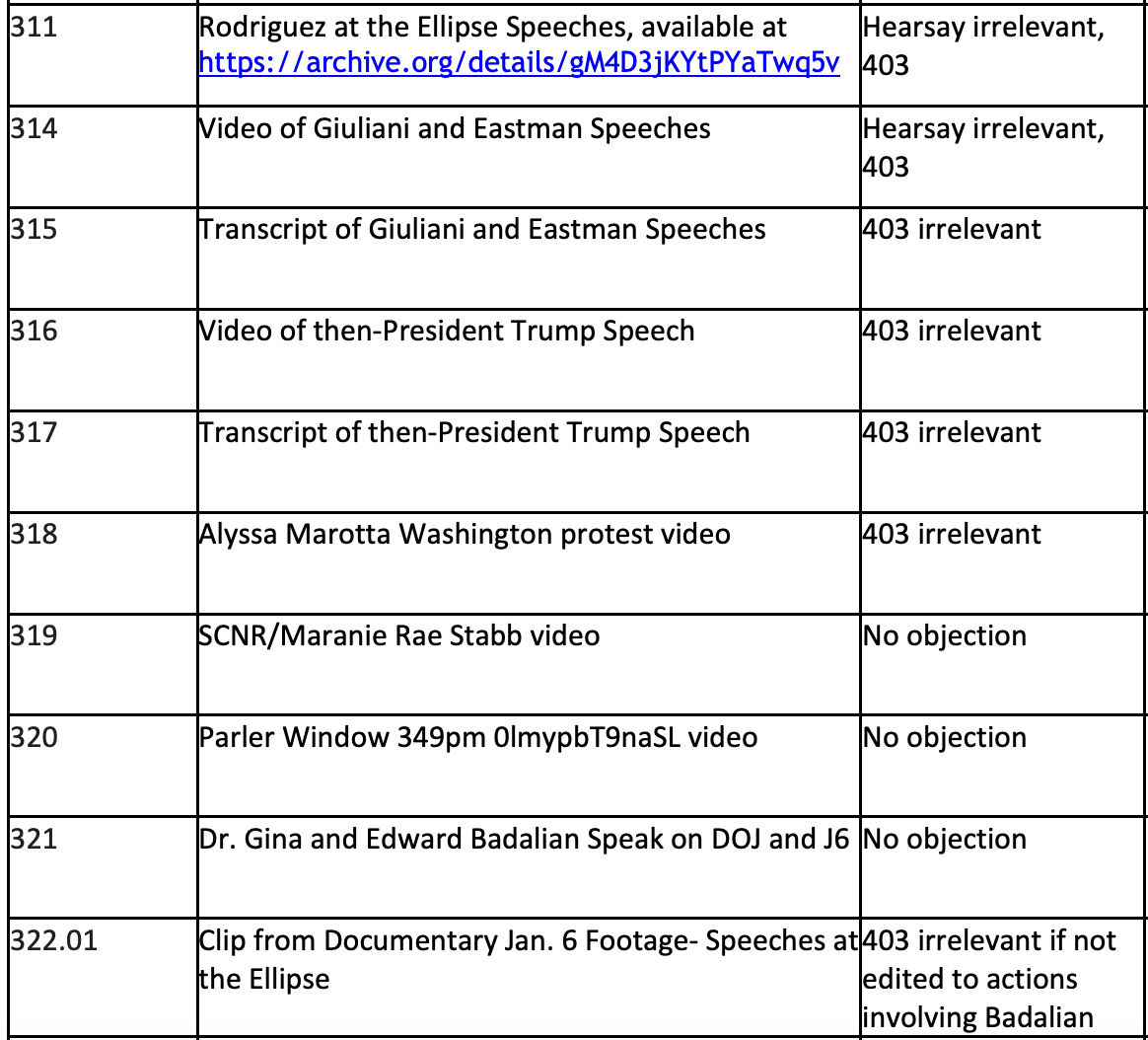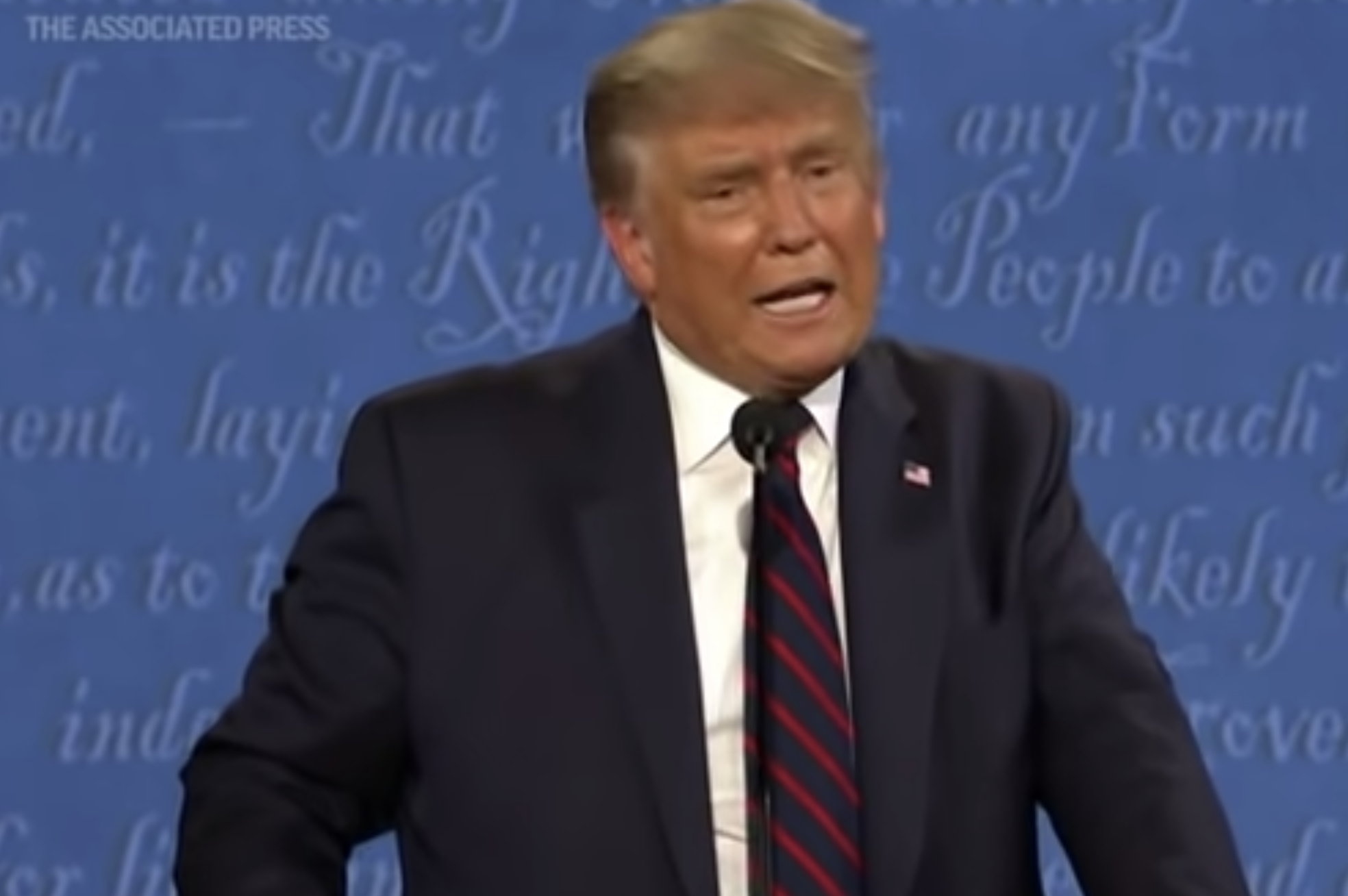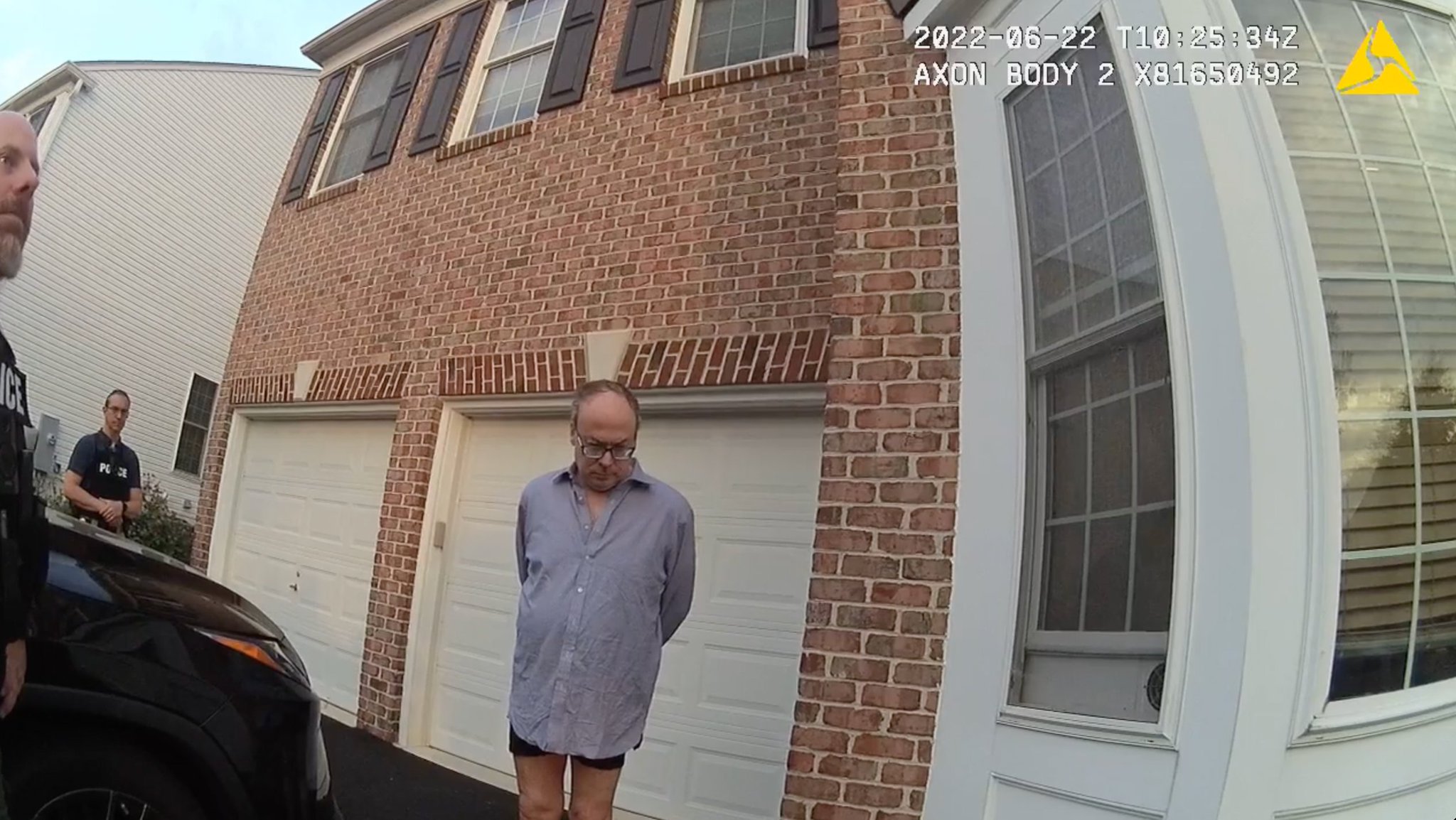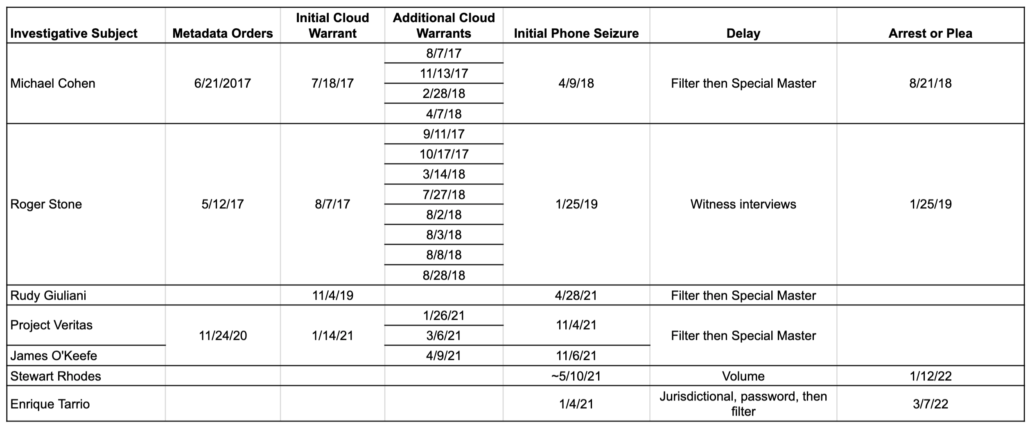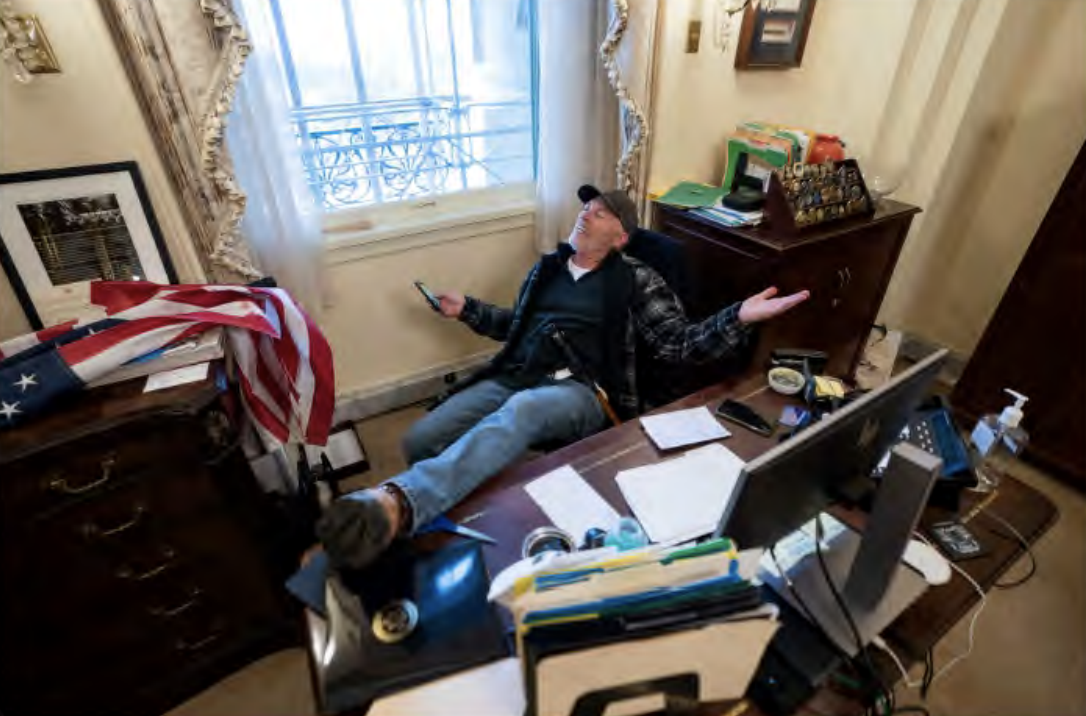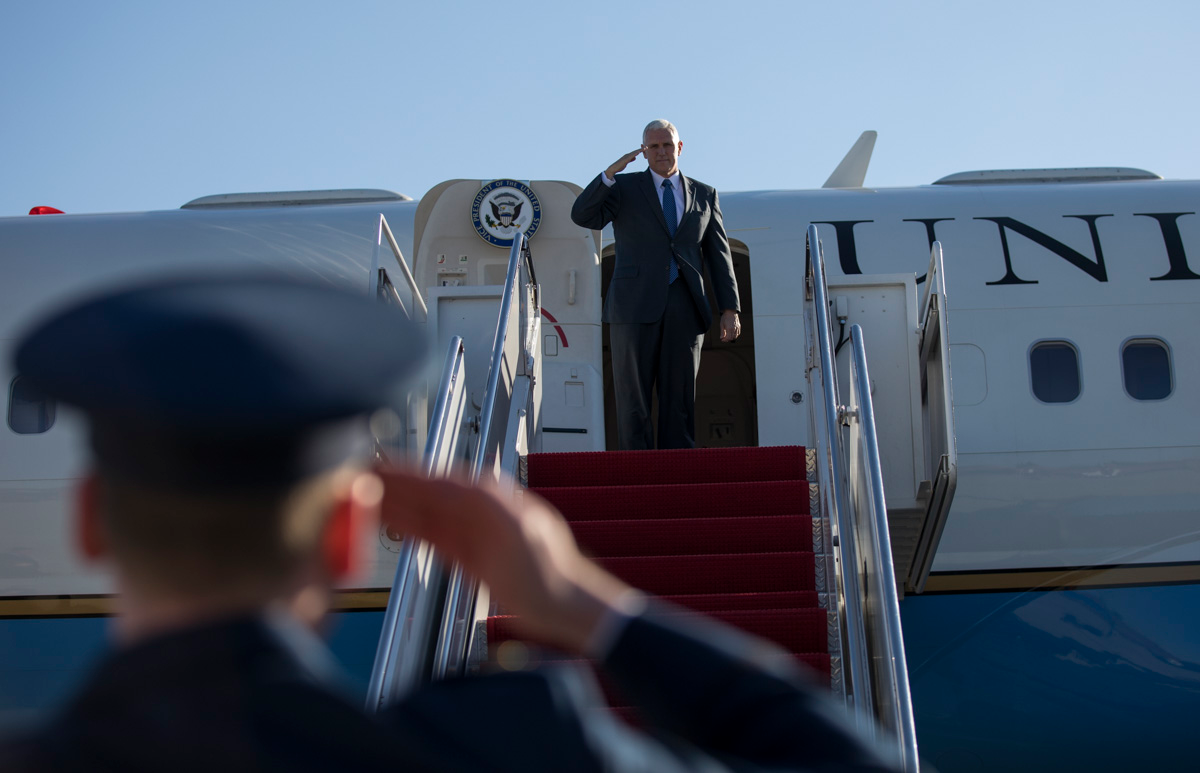In the past year, those who believe Trump could and should be held accountable for January 6 reached near unanimity that he should be charged with obstruction of the vote certification — 18 USC 1512(c)(2).
In the same year, certainty about how the law applies to January 6 has wobbled, with one appeal pending before the DC Circuit (which will be appealed no matter how it comes out), and either an expansion of this appeal or a follow-on one virtually certain. All that uncertainty may not change DOJ’s determination to use it; under all but the most restrictive appellate rulings, it should still easily apply to Trump and his ilk, though not necessarily all the January 6 rioters who’ve already been prosecuted with it.
But DOJ probably won’t know exactly how it’ll apply for at least six months, maybe another year.
This post will attempt to explain what has happened and what might happen going forward.
1512(c)(2) reads:
Whoever corruptly otherwise obstructs, influences, or impedes any official proceeding, or attempts to do so, shall be fined under this title or imprisoned not more than 20 years, or both.
You need an official proceeding — here, Congress’ vote certification mandated by the 12th Amendment, you need an attempt to obstruct it, and you need corrupt purpose. The “otherwise” here is at the center of the legal dispute, meaning how this clause relates to the rest of the obstruction statute is under dispute. But depending on that relationship, the obstruction statute has the advantage of including a potential 20 year sentence, an explicit conspiracy charge, with enhancements under the sentencing guidelines for things tied to the degree of obstruction and the use of violence that offers a good deal of flexibility to tailor sentences ranging from 4 months to 6 years (and hypothetically far higher).
At first, lawyers not following the actual DOJ investigation imagined that Trump could be held accountable for January 6 on an incitement model; indeed, that’s what Congress used in impeachment. But from the start, DOJ charged many of the rioters who premeditated their effort to stop the vote certification with obstruction. It charged Oath Keepers Jessica Watkins and Proud Boy Joe Biggs with obstruction from their initial arrest affidavits on January 16 and 19, 2021, respectively. A jury found Watkins guilty of obstruction (but not seditious conspiracy) on November 30, 2022, and Biggs’ obstruction and sedition conspiracy trial kicked off last Thursday.
In July 2021, I argued that Trump (and any of members of Congress prosecuted) would be charged with obstruction, not incitement. I repeated and expanded that argument in August 2021. In her December speech calling to hold Mark Meadows in contempt, Liz Cheney invoked obstruction as the crime under consideration, which led TV lawyers, almost a year after the fact, to consider Trump’s conduct using the frame of obstruction. In March, Judge David Carter ruled it more likely than not that Trump and John Eastman had attempted to obstruct the vote certification (adopting the 9th Circuit standard for corrupt purpose).
At that point, 14 months after the attack, everyone was in agreement: That’s how Trump could be held accountable. By prosecution under 18 USC 1512(c)(2).
But starting in a November 22, 2021 hearing in the case of Garret Miller, former Clarence Thomas clerk Carl Nichols explicitly raised questions about whether obstruction could apply to the President. In March, even before Judge Carter’s ruling, Nichols ruled that while the vote certification counted as an official proceeding, obstruction required the involvement of documents. In refusing to change his mind on reconsideration, Nichols also noted the discrepancy among DC judges as to what “corruptly” means in the statute.
And that’s how on December 12, 2022, almost two years into this process and a month after the appointment of a Special Counsel, former Trump White House lawyer Greg Katsas, Mitch McConnell protégé Justin Walker, and Biden appointee Florence Pan came to consider how 1512(c)(2) would apply to January 6. On paper, the question they were reviewing pertained to Nichols’ ruling that obstruction under 1512(c)(2) must involve documents. But along the way, the Republican judges invited both sides to weigh in on both how to define corrupt purpose under the statute and, procedurally, how to address it if they were going to rule on it (that is, whether to issue a ruling now, or to remand it back to Carl Nichols only to be appealed after he rules).
Defendants have challenged whether the vote certification counts as an official proceeding too, and I don’t rule out that this Supreme Court, would insert itself into that issue as well, especially given that protests associated with the Brett Kavanaugh confirmation have, from the start, been raised as an inapt parallel to January 6.
It has been a month since the DC Circuit ruling, so they could rule anytime. In the hearing, Katsas seemed inclined to rule for defendants on requiring obstruction to include a documentary component and to intervene to sharply narrow corrupt purpose. Walker seemed to start out in the same camp, but by the end may have come around to splitting his ruling, ruling with DOJ on the documents question but with defendants on the corrupt purpose one. Importantly, he seemed to favor tying “corrupt purpose” to some personal benefit. Pan, who presided over some of these cases before being elevated to the Circuit, seemed inclined to rule with DOJ on both counts.
Whatever the DC Circuit decides, it will be appealed.
If DOJ loses, they’re likely to ask for an en banc review, where they would not face a panel with a majority of Trump appointees. If the defendants lose, they’re likely to appeal it to SCOTUS, where they’d be guaranteed a conservative majority. If the DC Circuit remands the “corrupt purpose” issue — procedurally the correct thing to do — it might be another nine months before DC Circuit gets it back. And then that decision will be appealed by the losing side, to the full panel or SCOTUS. Plus there’s a minor issue on a Trevor McFadden ruling that will be appealed too, how much of a penalty to impose at sentencing.
There will not be certainty on how 1512(c)(2) applies to January 6 before June, and such certainty might not come until next June.
With rioters, DOJ has responded to these legal challenges by adopting several backstop positions. With edge cases, it allowed defendants accused of obstruction to plead down to the more serious misdemeanor, 18 USC 1752. With defendants who had some kind of confrontation with the cops, they have charged civil disorder, 18 USC 231. At the beginning of this process, there were the same kind of appellate challenges to 231, too, but those have been significantly resolved. With the Oath Keepers and Proud Boys, DOJ has also added 18 USC 372 charges, conspiracy to prevent Congress from doing its duty of certifying the vote count.
To see how those backstops would work, consider the Oath Keepers found guilty in the first sedition trial. If the obstruction verdict against all five were thrown out, Stewart Rhodes and Kelly Meggs would remain jailed on sedition guilty verdicts, Kenneth Harrelson and Jessica Watkins would remained jailed on 372 verdicts (as well as civil disorder in Watkins’ case), Thomas Caldwell’s other obstruction conviction — obstructing the investigation by destroying evidence — would stand, as would those of Rhodes, Meggs, and Harrelson. There seems to be some movement on plea bargaining in the third Oath Keepers group, which suggests DOJ may be offering some of them 231 pleas as well.
And because of that mens rea requirement, DOJ has had limited success in getting obstruction convictions. A jury hung on obstruction with Riley Williams, and Judge Amy Berman Jackson just acquitted Joshua Black of obstruction as well. Both Williams and Black were found guilty of other felonies.
As I said above, even if the DC Circuit or SCOTUS adopts the most restrictive rulings on existing challenges, an obstruction charge against Trump still should survive. That’s because Trump’s obstruction, which included the recruitment of fake electors to create falsified certificates that members of Congress could use to justify their vote challenges, entails a documentary component that should meet Nichols’ standard. And while the most restrictive imaginable definition of corrupt purpose would include a desire for personal benefit, Trump was seeking the most craven personal benefit of all: to remain President even after voters had fired him.
But the further you get from Trump, the harder proving such a corrupt purpose would be. Did Mark Meadows do what he did because he wanted to remain in a powerful White House position? Did John Eastman do what he did because he was seeking personal benefit? Did Peter Navarro? Did the lower level aides who flew fake elector certificates from state to state? Many of them did what they did because they believe Democrats are illegitimate, just like Clarence Thomas and Sam Alito do, or resent them like Brett Kavanaugh does, and so even that kind of ruling would constrain 1512’s applicability to the stuff that Jack Smith has been appointed to investigate.
Plus, if SCOTUS rules (perhaps driven byBrett Kavanaugh’s ever-festering resentment) that non-investigative Congressional proceedings are not official proceedings, then 18 USC 1512(c)(2) wouldn’t even apply to Trump.
As I alluded to in passing recently, one reason I think the scope of what has become the Jack Smith investigation has expanded, beyond the fact that it is investigating real corruption and the fact that numerous witnesses may be exposed on one part of the scheme and so could be coerced to cooperate on other parts of the scheme, is to backstop the Trump investigation. If you charge fraud based on raising money off false claims about vote fraud, and charge campaign finance violations tied to violating PAC rules, and charge conspiracy to defraud the US, forgery, and extortion tied to the fake elector plot, then it meets the standard for corrupt purpose that Dabney Friedrich adopted on 1512(c)(2): otherwise illegal activity.
But it also ensures that if SCOTUS throws out the obstruction charge for anyone for January 6, even someone corruptly seeking to remain President after being fired, those other charges would backstop the main charge, just like 18 USC 372 and civil disorder are backstopping charges against the Oath Keepers.
I think Trump has exposure on other charges, too. I believe Trump has exposure to aid and abet charges tied to the assaults his armed mob committed; that’s a lonely position, but I’ll take Amit Mehta’s opinion on the issue over virtually anyone else’s. I’m increasingly confident DOJ is trying to charge Trump in a conspiracy, via at least Alex Jones and Roger Stone, with the Proud Boys and other militias (though what that conspiracy would be depends on the Proud Boy jurors and the various appellate rulings). I wouldn’t be surprised if DOJ used 372 as a backstop with people like Trump, Eastman, and Meadows, just like they did with the two militias.
And DOJ is no doubt doing a similar kind of analysis as it considers whether and if so, how, to charge others who tie Trump and his associates with the crime scene, along with people who, independently of the White House efforts, funded or otherwise abetted the attack. None of that will entirely hold off further charges; in September, DOJ charged Kellye SoRelle, who has ties to the Oath Keepers, Latinos for Trump, and Trump’s efforts to undermine votes in some states, with three counts of obstruction (one of which would not be affected by these appellate issues). But her case has been continued until March. And, in part, because of the centrality of the Proud Boys case to where things go from here, I expect a lot to remain in flux until then on a bunch of other cases.
No matter how much work Jack Smith and his team get accomplished in the weeks ahead, it will be hamstrung by appellate uncertainty around the one charge, most everyone agrees, that should be used to hold Trump accountable.
Resources
Opinions upholding DOJ’s interpretation of 1512(c)(2)
- Dabney Friedrich, December 10, 2021, Sandlin*
- Amit Mehta, December 20, 2021, Caldwell*
- James Boasberg, December 21, 2021, Mostofsky
- Tim Kelly, December 28, 2021, Nordean; May 9, 2022, Hughes (by minute order), rejecting Miller
- Randolph Moss, December 28, 2021, Montgomery
- Beryl Howell, January 21, 2022, DeCarlo
- John Bates, February 1, 2022, McHugh; May 2, 2022 [on reconsideration]
- Colleen Kollar-Kotelly, February 9, 2022, Grider
- Richard Leon (by minute order), February 24, 2022, Costianes; May 26, 2022, Fitzsimons (post-Miller)
- Christopher Cooper, February 25, 2022, Robertson
- Rudolph Contreras, announced March 8, released March 14, Andries
- Paul Friedman, March 19, Puma
- Thomas Hogan, March 30, Sargent (opinion forthcoming)
- Trevor McFadden, May 6, Hale-Cusanelli
- Royce Lamberth, May 25, Bingert
Carl Nichols’ interventions:
DC Circuit proceedings
Amit Mehta opinion ruling it plausible that Trump conspired with rioters and the militias: February 18, 2022
David Carter opinion ruling, on 9th Circuit standard, it more likely than not that John Eastman and Trump obstructed vote certification: March 28, 2022
January 6 Committee Executive Summary, including referral for obstruction and other crimes: December 19, 2022


